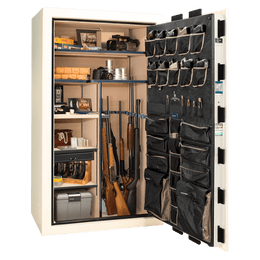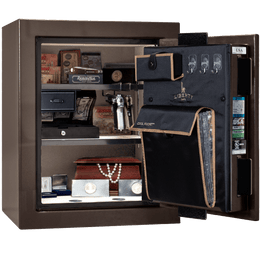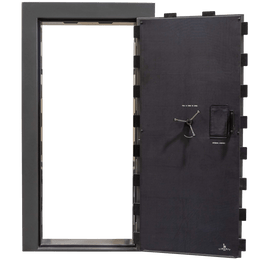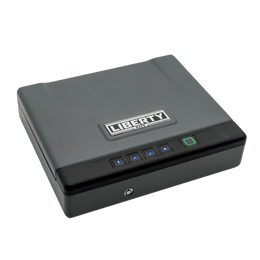When most people think about what to keep in a safe, they imagine family heirlooms, firearms, jewelry, or paper documents. But in today’s world, your most valuable assets may not be tangible at all. Photos, financial records, passwords, and even cryptocurrency wallets now represent an important part of your legacy and livelihood.
That’s why your Liberty Safe isn’t just for protecting what you can hold in your hands — it’s also the ideal place to store the digital essentials that matter most.
Why Store Digital Assets in Your Safe?
While cloud storage is convenient, it’s not foolproof. Accounts can be hacked, passwords stolen, or files lost if services shut down. Physical storage of digital backups gives you an additional layer of protection against cyber threats. And when combined with Liberty Safe’s theft resistance, your most important files are safeguarded against both online and offline risks.
Think of your safe as the central hub for your family’s digital security — the equivalent of a theft resistant filing cabinet for the 21st century.

What Types of Digital Assets Belong in a Safe?
1. Family Memories
- External hard drives or SSDs with photo and video backups.
- USB drives with scanned copies of family letters, genealogy research, or digital journals.
- Digitized home movies that preserve memories for future generations.
2. Financial & Identity Records
-
Encrypted USB sticks containing tax returns, insurance policies, and wills.
-
Backup of critical spreadsheets, invoices, or small business financials.
-
Secure digital copies of Social Security cards, passports, and driver’s licenses.
3. Passwords & Access Keys
-
Encrypted password manager backups (in case your cloud account is inaccessible).
-
Security keys (YubiKeys, 2FA hardware tokens) for online accounts.
-
Crypto wallet backups — paper wallets, hardware wallets like Ledger or Trezor, or encrypted seed phrases.
4. Emergency Essentials
-
Copies of medical records stored on a USB or SD card.
-
A contact list with phone numbers and account access info.
-
Scans of important documents for fast replacement after a disaster.
Best Practices for Storing Digital Assets in Your Safe
Use Encryption & Password Protection
Never store unprotected digital files. Encrypt drives and use strong, unique passwords so that even if someone gains access, your data is useless without the key.
Update Regularly
Schedule backups at least every 6–12 months. Outdated files can be just as risky as having none at all.
Mind the Environment
Choose fire-rated safes and consider accessories to protect electronics from heat and humidity.
Stay Organized
Label drives clearly (“Photos 2025,” “Financial Records,” etc.) and keep an inventory list inside the safe so you know what’s stored where.

Which Safes Work Best for Digital Storage?
Nearly any Liberty Safe can protect your digital assets, but certain models give you additional confidence:
-
Premium Home and Home Safe Series: Compact and fire-rated, ideal for small households and essential digital backups.
-
Centurion & USA Series: Balance of space, fire protection, and affordability.
-
Presidential Series: Maximum fire resistance and customizable interiors for serious collectors and tech-savvy families.
Pair your safe with Liberty’s fire-resistant document pouches or Cool Pockets for added security when storing sensitive documents.

Safeguarding Your Legacy — Past and Future
Your safe is more than a vault for valuables. It’s a bridge between generations — protecting family heirlooms from the past while also securing the high-tech digital assets that define today’s world. By treating your Liberty Safe as both a guardian of memories and a vault for digital resilience, you ensure your family’s story is preserved no matter what the future brings.
Take the next step: explore Liberty Safe’s collection of anti- theft safes here and start protecting your digital and physical legacy today.







